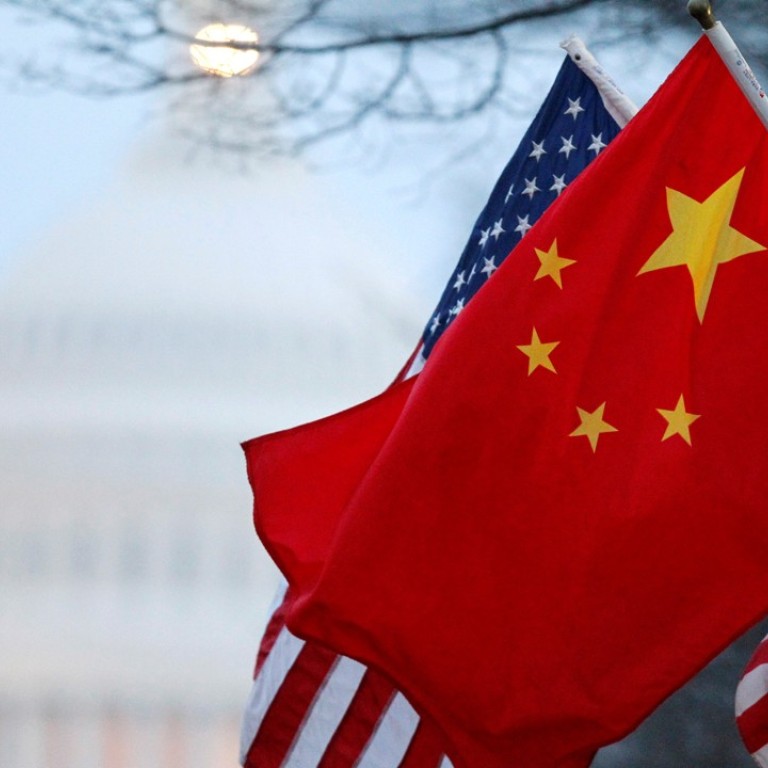
Chinese investment into US down by a third as Washington and Beijing battle over trade
Transactions show first major correction in a decade and signs of Chinese firms seeking buyers for their US assets – but US investment into China is stable
China’s investment flows into the United States face a bleak outlook as a result of mounting bilateral economic conflicts and US attempts to limit access for Chinese capital, a new report warns.
The US was working on stricter scrutiny to restrict access because of national security concerns, the Rhodium Group said in a report released in Beijing on Thursday.
Beijing and Washington have been engaged in tit-for-tat measures amid escalating trade frictions, including concern in Washington about Chinese capital flooding into the US, and particularly its strong appetite for technology.
Research agency Rhodium said that the political resistance had already affected the investment climate.
“At the end of the first quarter of 2018, we recorded less than US$5 billion of pending Chinese acquisitions, which is the lowest level in three years,” it stated in annual reports to analyse two-way direct investment.
In 2017, completed Chinese foreign direct investment (FDI) transactions into the US fell by more than a third to US$29 billion, “the first major correction in a decade”, as Beijing imposed capital controls and Washington toughened screening of China’s takeovers of US hi-tech assets. US investment into China showed little change, at US$14 billion last year.
“The impact from this decline in FDI activity was also felt on the local level: planned greenfield projects were delayed, fewer jobs were added to Chinese payrolls compared to the previous year, and some Chinese firms even began seeking buyers for their US assets,” the report said.
Chinese companies added about 7,400 US jobs last year, which was the lowest in five years and brought the total number of Americans employed directly by Chinese-owned companies in the US to 139,600, the report said. California, New York and Massachusetts were the three leading states for receiving Chinese capital last year, it added.
Real estate and hospitality, information and communication technology, energy, and agriculture and food were the most favoured targets for Chinese investors, which together accounted for more than two thirds of all Chinese FDI in the US from 1990 to 2017, said Rhodium Group.

The biggest transactions in 2017 were conducted by HNA Group, the embattled Chinese conglomerate which is now desperately selling off assets to reduce its debt.
It is unloading its 25 per cent equity stake in hotel operator Hilton, which HNA completed the purchase of last year for US$6.5 billion.
Lester Ross, partner-in-charge at WilmerHale’s Beijing office, said that although China had made “some positive moves” in pushing for economic reforms, the mistrust in the US towards China may make reconciliation between the two countries difficult.
Referring to the market openness measures announced by Chinese President Xi Jinping last week, Ross said: “We’ve seen some positive moves in that regard.
“The question is… whether it is in some respect too late, whether the political atmosphere in the US has already been changing… such as there are new barriers to Chinese investments to the US.”
The Trump administration is working on restrictions to limit Chinese investment, especially in US technology companies, and the Congress is revamping the law to give the inter-agency Committee on Foreign Investment in the United States more scope and jurisdiction in scrutiny of inward investment, especially from China.
Some members of Congress are calling for broader export controls on foreign companies that operate in the US and do business with China.
It has long been speculated that Chinese authorities may launch anti-monopoly investigations as a countermeasure in the trade confrontation with the US.
China’s Ministry of Commerce said on Thursday that it had started an antitrust inquiry into US smartphone chip maker Qualcomm’s takeover of Dutch chip maker NXP Semiconductors – which requires approval from market regulators in nine countries – on the basis that the deal could harm market competition. It said it would take “a large amount of time” to conduct the investigation.


